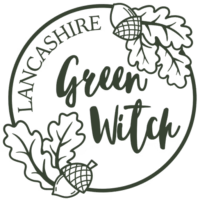What Is Litha? Understanding the Summer Solstice Sabbat
At the height of the year, when the sun stands still and the days stretch to their longest, we arrive at the festival of Litha—also known as the Summer Solstice. It is a time of fire and fullness, a celebration of the earth’s peak vitality, and a moment to pause in gratitude before the slow return of the dark.
Litha is one of the eight Sabbats on the Wheel of the Year, and it holds powerful meaning for those who follow earth-based spiritual paths. This ancient midsummer festival honours the sun at the height of its strength and recognises the abundance, energy, and life force present in nature.
If you’re looking to bring this energy into your practice, handcrafted tools like the Litha Altar Oil or Litha Ritual Candle Kit can help you set intention and create sacred space with ease.
When Is Litha Celebrated?
Litha usually falls on or around 21st June in the Northern Hemisphere, marking the exact point when the sun reaches its highest point in the sky. It is the longest day and shortest night of the year, and after this, the light slowly begins to wane as the wheel turns toward autumn.
What Does Litha Symbolise?
Litha represents light, power, growth, and celebration. It is the sun at full strength, life in full bloom, and a moment of energetic high tide.
At this time of year, fields are ripening, flowers are abundant, and the days are warm and long. In many spiritual traditions, Litha is a time to honour:
The sun and its life-giving power
The fertility and abundance of the land
The growth we’ve cultivated since spring
Our own inner strength and vitality
This is also a time to give thanks for blessings already received and to make offerings for continued protection, prosperity, and good harvests.
Common Litha Traditions and Celebrations
Litha is a fire festival, deeply rooted in folk customs that span across cultures and time. Here are some of the ways Litha is traditionally honoured:
1. Lighting Bonfires
Bonfires were often lit on hilltops or in open fields to symbolise the strength of the sun. People would dance around them, leap over the flames for good luck, or carry embers home to bless their hearths. Fire at Litha is a symbol of purification, protection, and power.
2. Feasting and Outdoor Gatherings
Many communities would celebrate with shared meals, songs, and storytelling under the sun or stars. Fresh fruits, garden herbs, and seasonal baked goods were often part of these feasts. Today, a summer picnic or shared meal can still hold that same spirit.
3. Offerings to Nature Spirits
Litha is a time when the veil is said to be thin between humans and the spirits of the land—fae, guardians, ancestors, or nature deities. Offerings of honey, bread, flowers, or milk are left in wild places with reverence and thanks.
4. Herb Gathering and Magical Work
Herbs gathered at Midsummer are believed to hold extra potency. St John’s Wort, mugwort, lavender, and yarrow are all traditional. Tools like Litha oils or spell candles are often made at this time and charged under the midsummer sun.
5. Sunrise and Sunset Rituals
Watching the sunrise or sunset on the solstice is a simple but powerful way to honour the turning of the year. Meditating at these times allows for reflection, release, and new intention.
Litha in the Modern Witch’s Practice
For many modern witches and pagans, Litha offers a chance to reconnect with the land, with seasonal rhythms, and with personal power. Whether you celebrate with a full ritual, a quiet cup of tea in the morning sun, or a walk through wildflowers, this Sabbat reminds us to pause and appreciate the moment of fullness before the wheel turns again.
You’ll find seasonal tools, oils, and spell kits in my Etsy shop if you’d like to bring a touch of handcrafted ritual into your solstice celebration.
Litha is about standing still in the light, recognising what we’ve grown, and planting seeds of intention for the months ahead. It’s a festival of joy, gratitude, and deep connection to the natural world.
Discover more from Lancs Green Witch
Subscribe to get the latest posts sent to your email.



